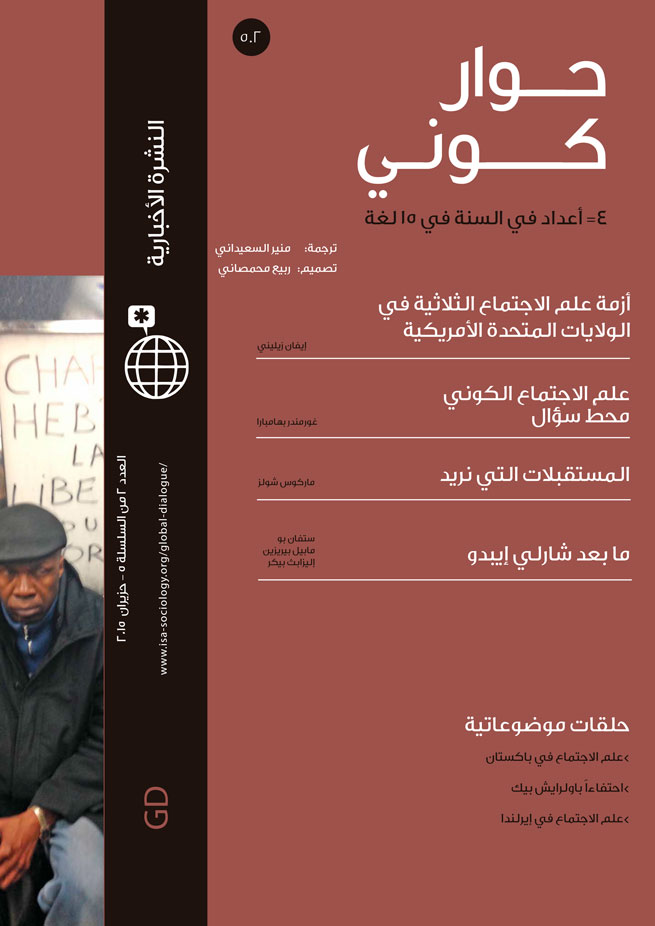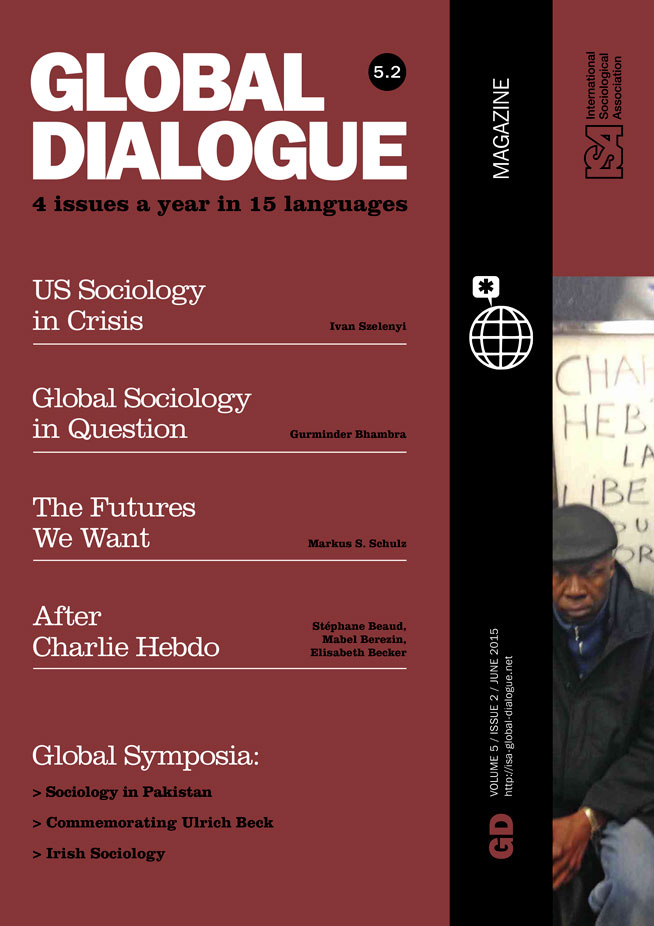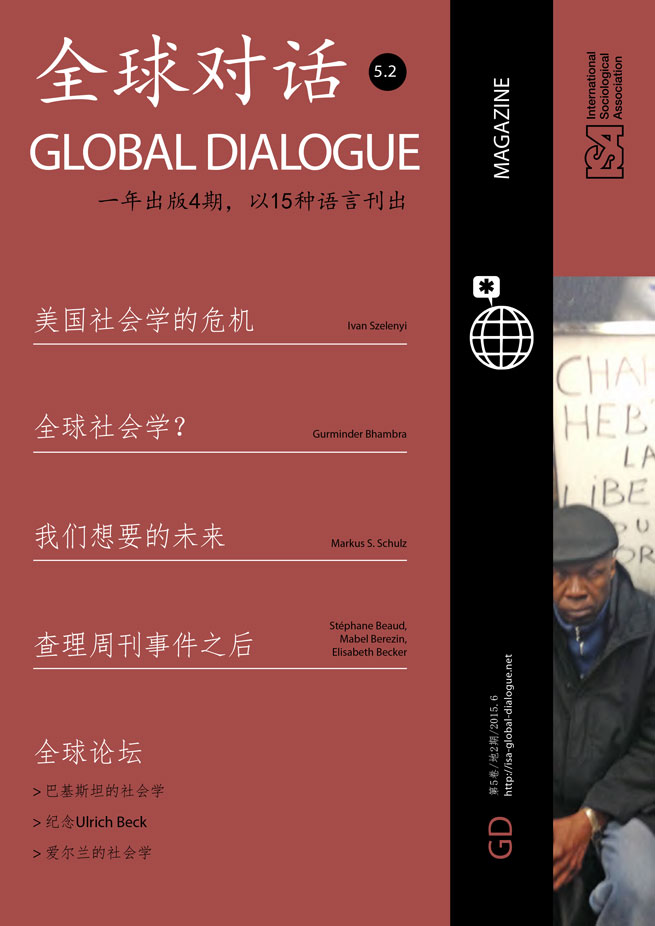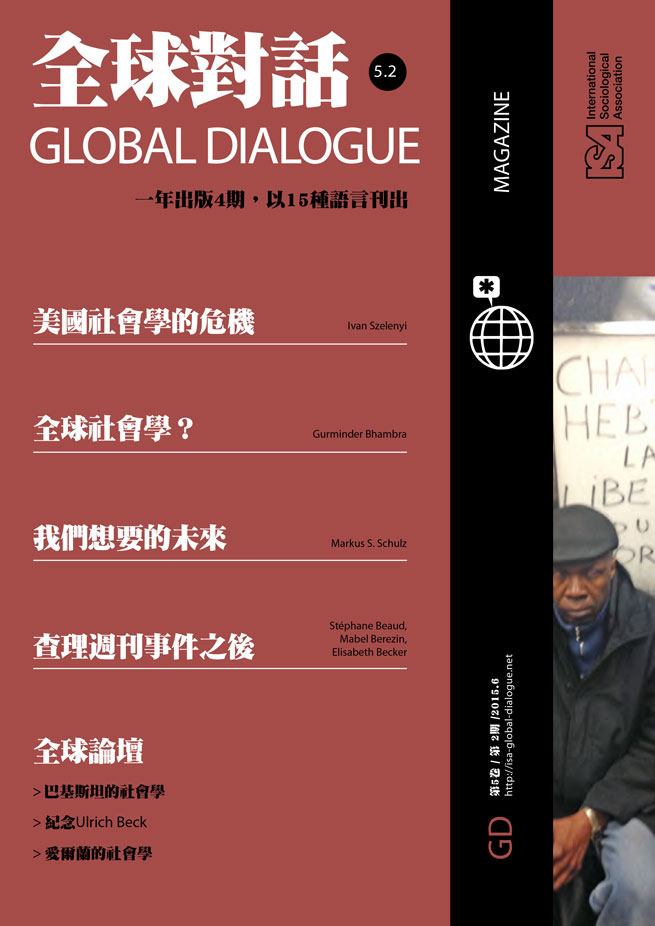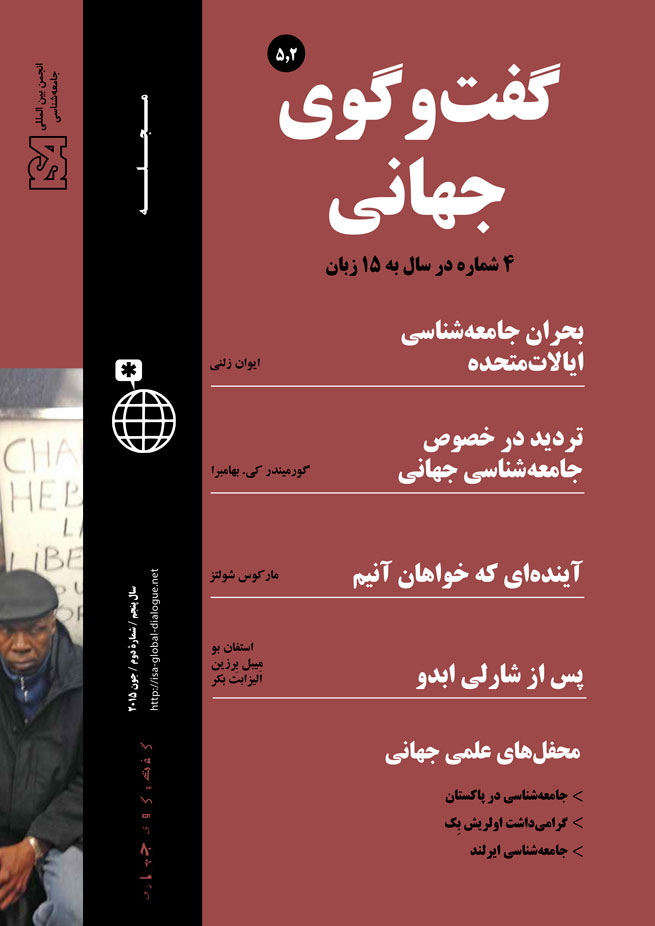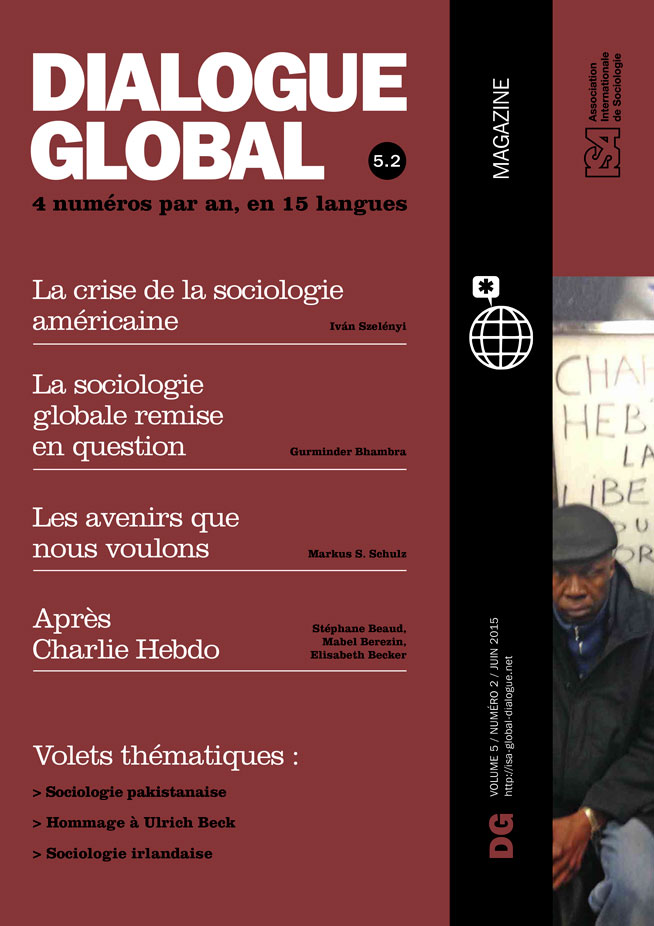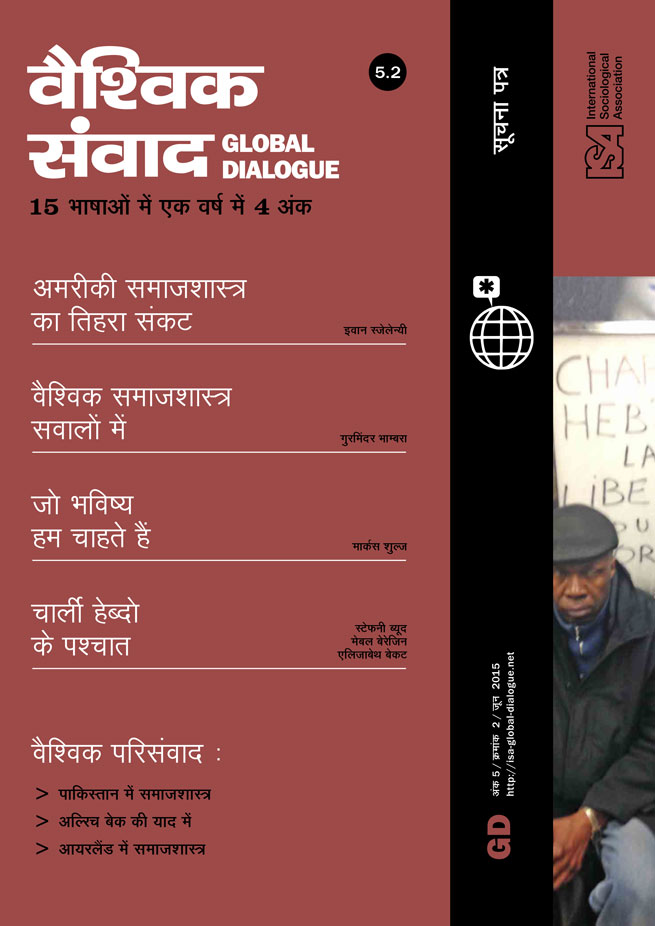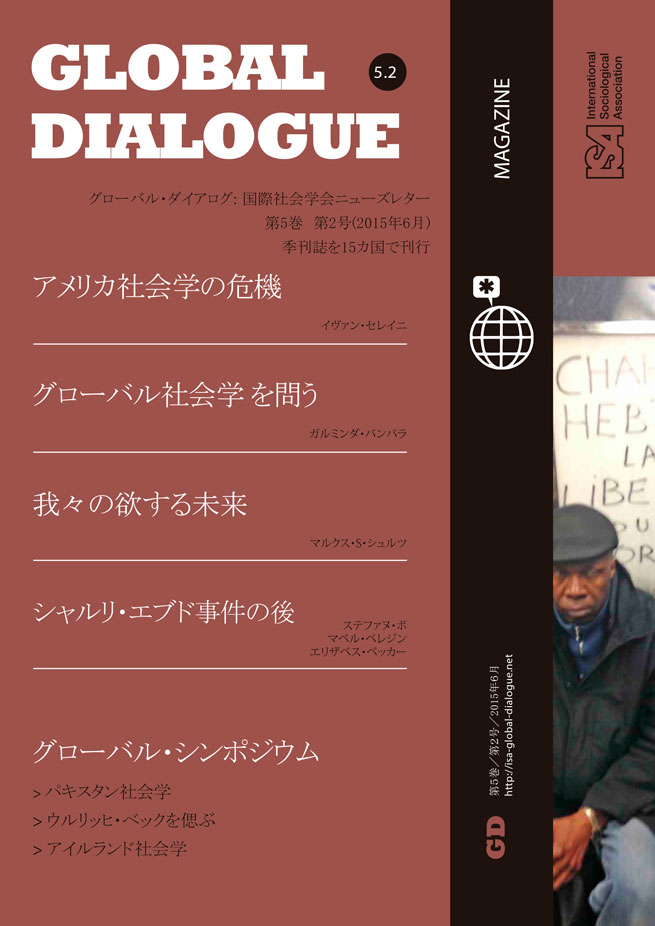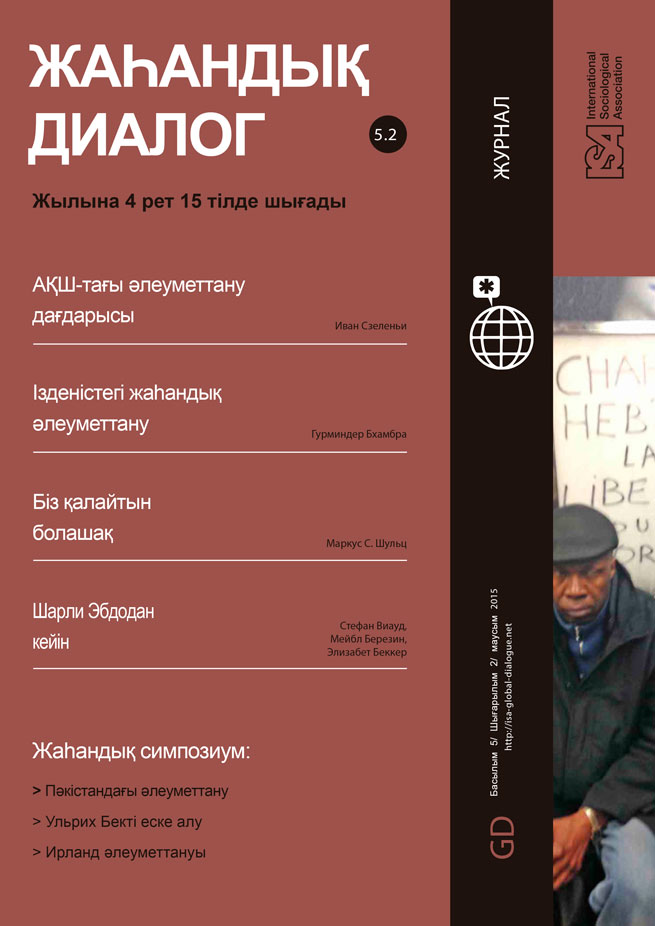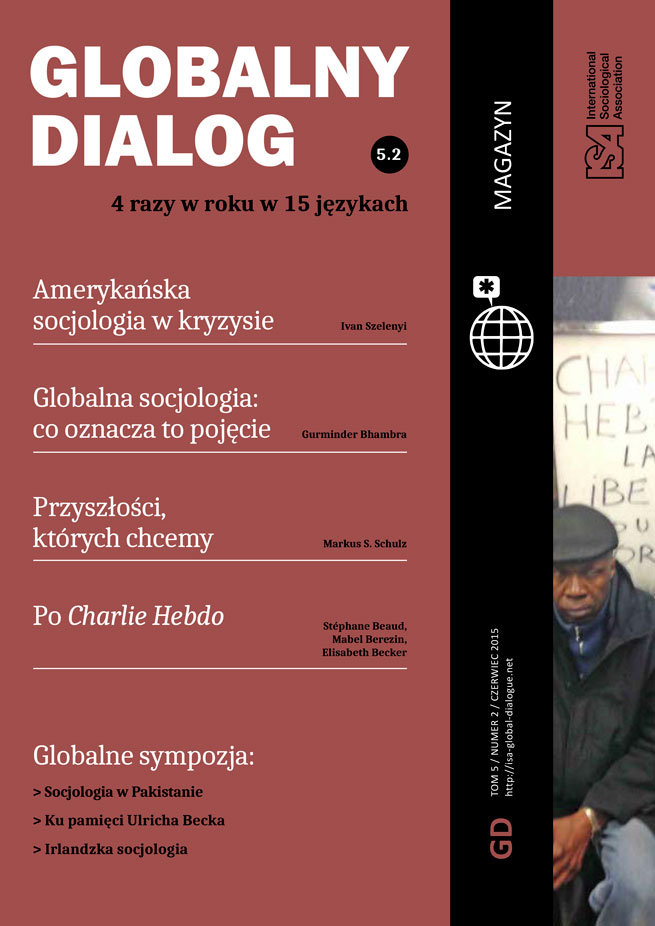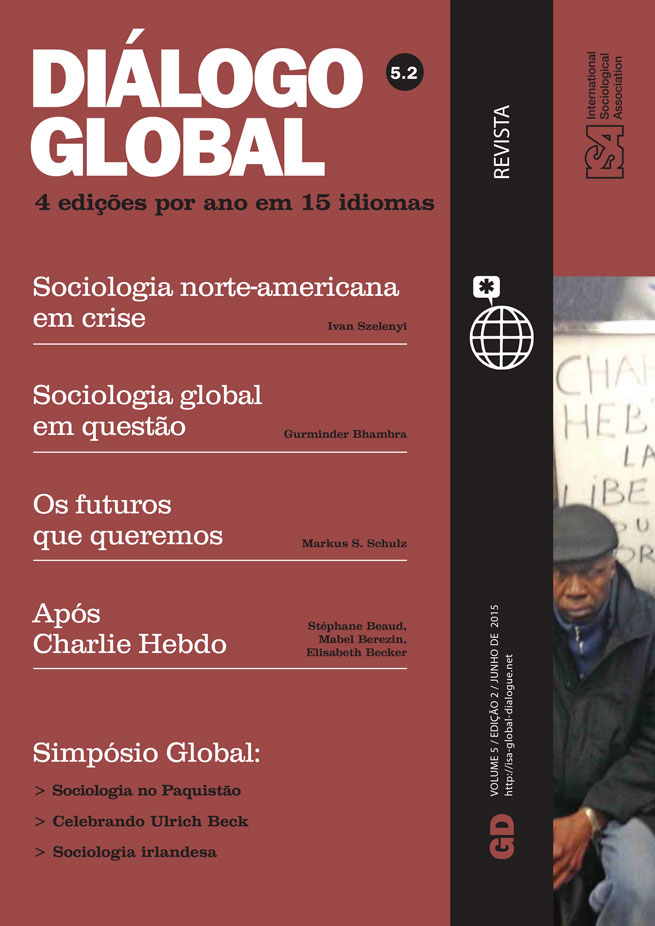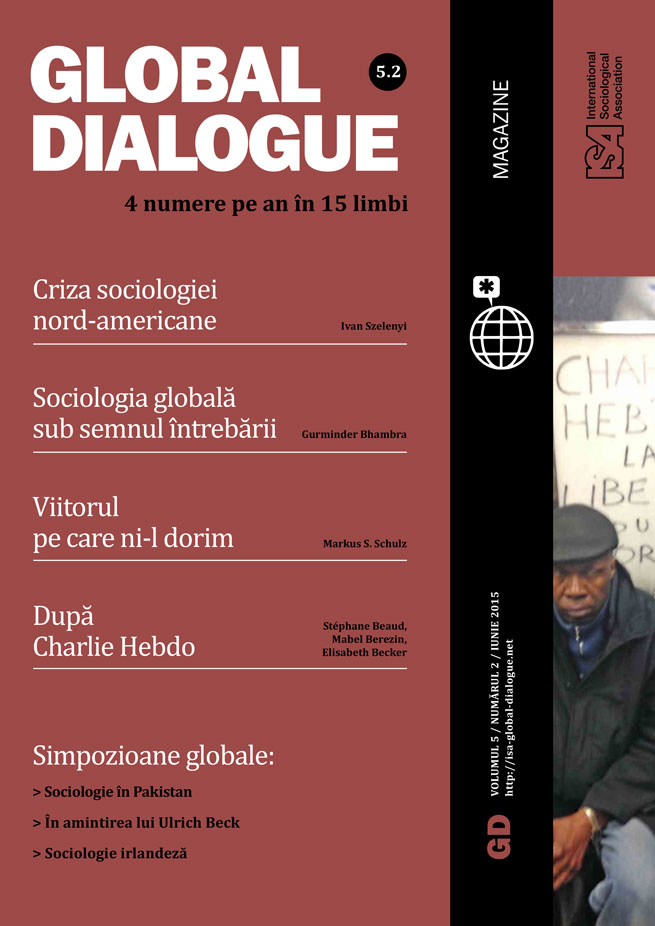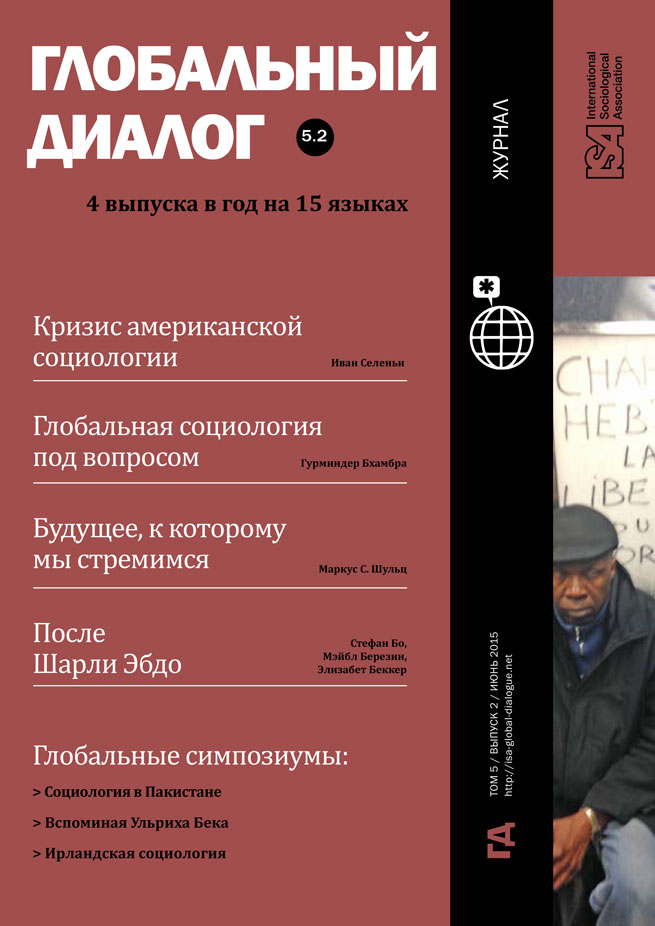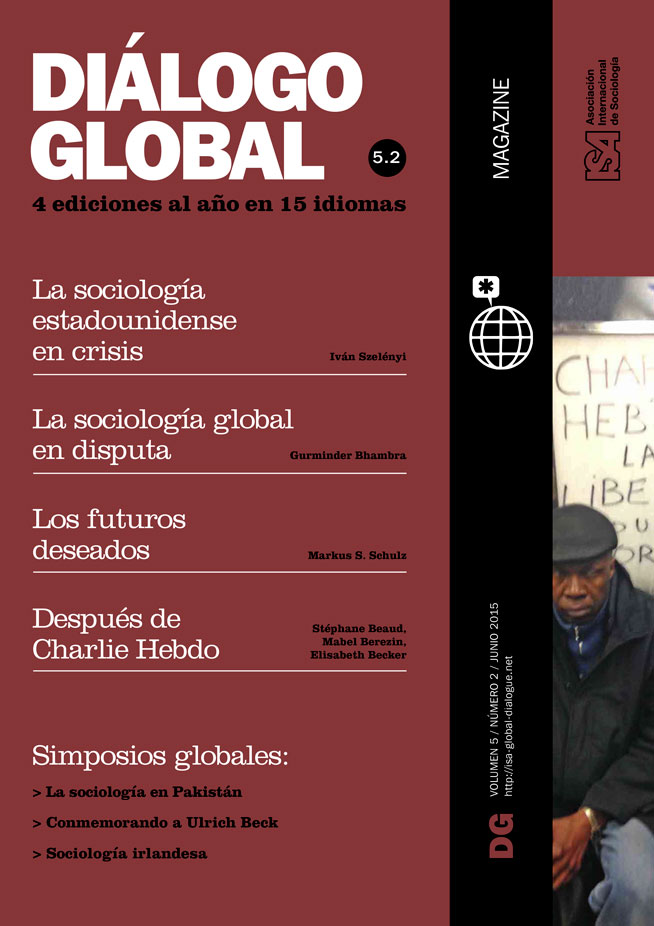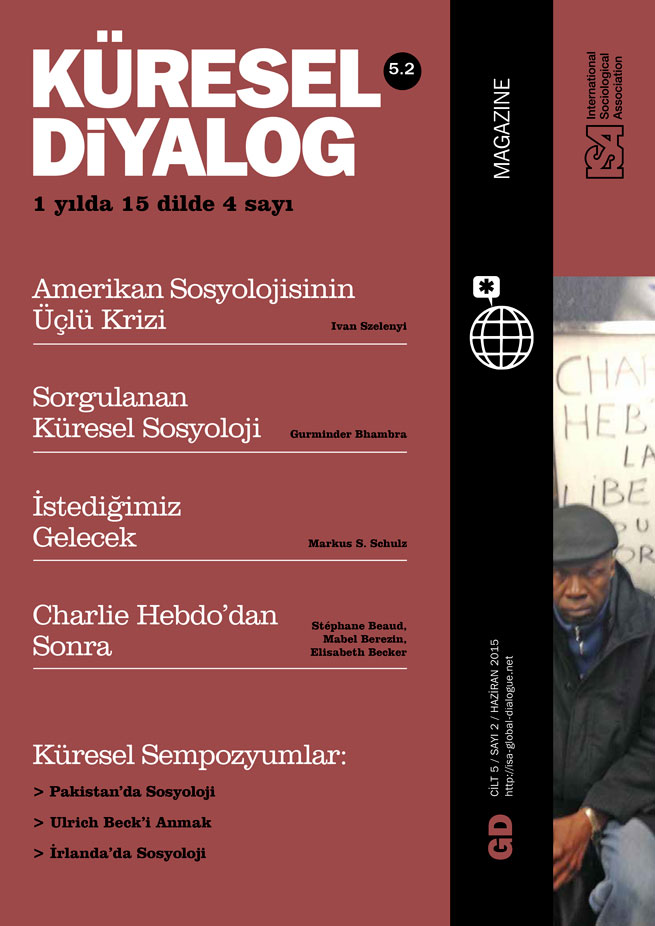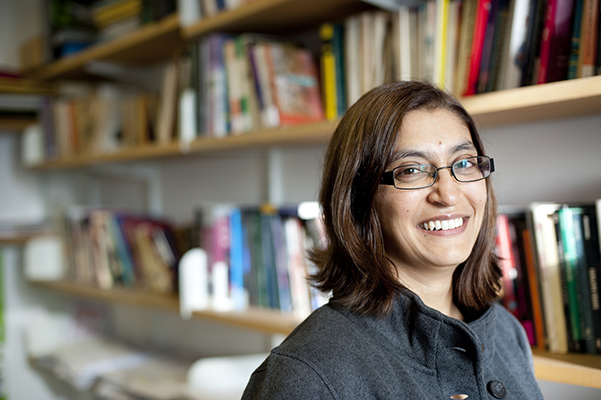Read more about The Future of Sociology, the Sociology of Future
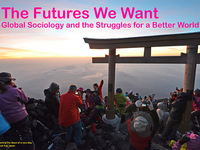
The Futures We Want
by Markus S. Schulz

The Triple Crisis of US Sociology
by Ivan Szelenyi
April 30, 2015
Gurminder K. Bhambra is a leading figure in the development of postcolonial sociology. She addresses sociology’s parochialism by showing how the experience and contributions of the colonized have been rubbed out of history. Her recent book, Connected Sociologies (2014) elaborates the arguments presented here – critical of Eurocentric approaches to globalization that hide the centrality of non-European “others” in forging the world we know today. She has written about the marginalization of African-American sociology from the core of the US discipline and how contemporary notions of citizenship ignore its historical underside, namely its close ties to colonialism and slavery. She is the editor of an exciting new book series, Theory for a Global Age.
“Global sociology” has been proposed as a way to redress the previous neglect of those represented as “other” in dominant “Eurocentric” constructions of modernity within sociology – and as a path towards a rejuvenated sociology for a newly-global age. This path involves three main components: (1) a shift to a multiple modernities paradigm; (2) a call for a multicultural global sociology; and (3) an argument in favor of a global cosmopolitan approach. While these approaches ostensibly take “the rest of the world” into consideration, I suggest that they do so under terms which are inadequate.
In contrast, I argue for a “connected sociologies” approach built on postcolonial and decolonial critiques of Eurocentrism, as a better way of understanding a shared global present. The central concern of “connected sociologies” is to rethink sociology, putting histories of dispossession, colonialism, enslavement and appropriation at the heart of historical sociology and the discipline more generally. Only by acknowledging the significance of the “colonial global” in the constitution of sociology, I argue, can we understand and address the postcolonial and decolonial present that would be the terrain of a properly critical “global sociology.”
Sociology and modernity are typically represented as co-constitutive, with the emergence of the modern world – and its associated economic and political revolutions – requiring a new, “modern” form of explanation. Alongside this understanding, which attributes modernity to Europe, is the idea that the rest of the world was external to these world-historical processes. Colonial connections and processes are understood to be insignificant to modernity in its supposedly originating locations, as well as to modernity’s suppression or deformation elsewhere. While historical accounts of these revolutions – and, thus, of modernity itself – have not remained constant over time, the historiographical frame – of autonomous endogenous origins and subsequent global diffusion – within which these events are located continues. This is so, even where the claim is for a new “global sociology.”
Multiple Modernities
Multiple modernities, for example, replaced modernization theory as a distinct research paradigm within historical sociology in the late 1990s. Modernization theory had already come under serious criticism from Marxist approaches as well as from theorists of dependency and underdevelopment. In arguing for multiple modernities, scholars sought to avoid two fallacies: first, the idea that there is only one modernity – that of the West, to which others would converge; and second, the idea that looking from West to East necessarily constitutes a form of Eurocentrism. These scholars argue that while it would be Eurocentric to assert the idea that there is only one modernity, especially one that has already been achieved in Europe, theories of multiple modernities nonetheless take Europe as the reference point in their examination of alternative modernities. In this way, they effectively defend the dominant approach by suggesting that the “fact” of the European origins of modernity cannot be denied. In contrast, I suggest that it is precisely this “fact” that must be denied, once global interconnections are properly recognized and understood.
Indigenous Social Science
More recent arguments for a “global multicultural sociology” draw on themes from earlier engagements with the “indigenization” of the social sciences, calling for the development of autonomous or alternative social science traditions. These long-standing arguments for “global sociology” have not always influenced mainstream sociological debates within the West, but have nonetheless sparked much discussion including here in Global Dialogue and its precursors. A key point within this debate has been the call for the development, or recovery, of autonomous sociological traditions that would be informed by local and regional experiences and practices. As with multiple modernities, however, there is little discussion of what these autonomous traditions might offer to a global sociology. If the limitations of existing approaches are seen to stem from a failure to engage with scholars and thinkers from outside the West, then the main problem is presented as one of marginalization and exclusion. The solution to this becomes the call for a putative equality, through recognition of difference, and through an effort to redress the “absence of non-European thinkers” within the discipline. While this is unquestionably an important issue and may indeed enable the creation of a (more) multicultural sociology in the future, it does little to address the problematic disciplinary construction of sociology in the past, or the continued ramifications of this construction in the present.
Cosmopolitan Sociology
Now I wish to turn briefly to the third approach identified above, the claim for a new universalism centered on a globally cosmopolitan sociology. Cosmopolitanism, in this context, is presented as a normative imperative, in which a vision of a cosmopolitan future could shape the politics of the present. This, in turn, is supplemented by efforts to reconstruct sociology through a cosmopolitan paradigm based on potential global inclusivity. The issue of inclusivity remains “potential,” however, as for most theorists of cosmopolitanism it remains dependent on “them” being included on “our” terms. Universalism is considered necessary to avoid the relativism of local knowledges, including that of Western sociology, but there is no discussion of how cosmopolitanism could be used as a perspective to consider the cosmopolitan connections absent in standard disciplinary histories. Acknowledging such histories would allow us to rethink sociology’s concepts and categories starting from a consideration of the other, rather than seeing the other as a problem to be accommodated.
All of the approaches discussed above conceptualize the global through an additive approach, which celebrates a contemporary plurality of cultures and voices without addressing the historical roots (and routes) of the present configuration of the globe. All three regard the global as constituted through contemporary connections between what are presented as previously historically separate civilizational contexts – instead of recognizing that the histories of colonialism and enslavement are central to the development of the “global.” Approaching the “global” only as a recent phenomenon, the sociological reconstruction that these approaches urge is to be applied to future endeavors, implying the adequacy of past interpretations and conceptual understandings. This, I suggest, maintains the existing hierarchies of the discipline. Simply calling for voices from the periphery to enter into debates with the center implies that sociology could be different in the future, but fails to acknowledge that in order for this to happen, sociology would also need to relate differently to its own past (and to the pasts it considers significant for an understanding of the discipline).
Connected Sociologies
The perspective of “connected sociologies,” with which I wish to conclude, starts from the recognition that events are constituted by processes that are always broader than the selections that are made. It recognizes a plurality of possible interpretations and selections, not as a “description” of events and processes, but as an opportunity for reconsidering what we previously thought we knew. The different sociologies in need of connection are themselves located in time and space, including in the time and space of colonialism, empire, and postcolonialism. These new sociologies will frequently appear discordant and challenging, and they may be resisted on that basis (a resistance made easier by the geo-spatial stratification of the academy). The consequence of different perspectives, however, must be to open up examination of events and processes such that they are understood differently in light of that engagement. Put another way, engaging with different voices must move us beyond simple pluralism to make a difference to what was initially thought; not so that we all come to think the same, but that we think differently from how we had thought before our engagement.
The idea of the political community as a national political order, for example, has been central to European self-understanding and to European historical sociology. Yet many European states were as much imperial states as they were nation states – often prior to or alongside becoming nation states – and so the political community of the state was always much broader and more stratified than is usually acknowledged. While the political community of the British Empire, for example, was historically a multicultural community, this understanding rarely enters contemporary political discourse – where the boundaries of political community are imagined as congruent with the territorial boundaries of the state, understood in national terms. By silencing the colonial past, the postcolonial present of Europe (and the West) is elided. The political repercussions of such selective understandings can be clearly seen in the debates on immigration that disfigure most national elections in Europe.
Elections mark a period when the terms of the political contracts that bind people together are up for negotiation. While these contracts invariably involve the negotiation of present conditions, they occur in the context of particular historical narratives of belonging: by definition, “migrants” are excluded from the history of states, understood in national terms. Excluded from the history of political community, “migrants” are also excluded from rights within the polity and are increasingly being asked to leave that polity. If, however, we understand the histories of nation-states as broader than accounts of activities of supposedly “indigenous” inhabitants, then the arbitrary reduction of history to contemporary national boundaries clearly misidentifies people associated with more expansive histories as migrants, instead of viewing them more properly as citizens. Migration is integral to the narrative of national, and European, identity; to understand migration as central and as constitutive of the histories of states is to understand that migrants are also historically citizens, not just potential citizens-in-waiting.
A “connected sociologies” approach, then, requires starting from the perspective of the world by locating oneself within the processes that facilitated the emergence of that world. By starting from a location in the world, we necessarily start from a history which links that location to the world, identifying and explicating the connections that enable understandings always to be more expansive than the identities or events they are seeking to explain. The more common approaches to global sociology discussed above sidestep the issue of the history of the global, regarding as significant only those connections believed to have brought European modernity to other societies. By contrast, a “connected sociologies” approach requires that we locate Europe within wider processes, address the ways in which Europe created and then benefitted from the legacies of colonialism and enslavement, and examine what Europe needs to learn from those it dispossessed in order to address the problems we currently face.
The “connected sociologies” approach points to the work needed to make good on the promise of a reinvigorated sociological imagination in service of social justice in a global world.
Gurminder K. Bhambra, University of Warwick, UK and Board Member of ISA Research Committee on Conceptual and Terminological Analysis (RC35) <G.K.Bhambra@warwick.ac.uk>
This issue is not available yet in this language.
Request to be notified when the issue is available in your language.
If you prefer, you can access previous issues available in your language:
